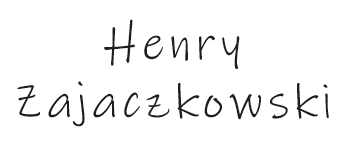I was first employed writing concert programme notes for the Wigmore Hall, London, 1981-82, mostly for two seasons of ‘Russian Concerts’, though I started with an item in the Wigmore’s ‘Summer Nights’ season, namely the Allegri String Quartet’s performance on 18 July 1981. Their concert began with Haydn’s String Quartet in G major, Op. 33 no. 5, the so-called ‘How do you do’ quartet (after the rhythm of the opening notes, which happens to fit those words). That piece has always had a nostalgic association for me, as it marks the point when I began my professional work as a writer, and shortly after which, in late July 1981, I moved down to London. Subsequent to work for the Wigmore Hall I became a freelance music tutor of private pupils in London, from 1982 to 2013, in the autumn of which year I entered into semi-retirement. During that 31-year period I taught a wide range of disciplines in the musical field to pupils ranging in age from 4 to 80-plus: piano, musical theory, harmony and counterpoint, realization of figured bass in late Baroque compositions, orchestration, and, occasionally, private G.C.S.E. and A-level music exams (also private O-level at the start of that period, when that was a nationally available exam).
Work writing articles and reviews for academic music journals (though, depending on the particular journal, some of that was done gratis) and giving broadcast talks for B.B.C. Radio 3 (see sections (c) and (e)) has supplemented my income from freelance teaching. Likewise, royalties from my two books (see section (c)) have added to my income as a tutor.
For several years following the publication in 2005 of my second book, there was a period of working in two locations, Nottingham as well as London. This was an intensive phase of teaching, for part of which I opened up a business name: HSZ Music Tuition Ltd. (2008-13). This was to build up a base of private pupils in Nottingham, local to where I live, in Mansfield, in preparation for semi-retirement and the completion of my tutoring projects in London. Since becoming part-retired in 2013 my work has exclusively been in the Nottinghamshire area, and in addition to musicological writing and composing, has consisted mainly of freelance piano and musical-theory tutoring.
I have also carried out work as a eurythmy pianist, at the Iona School in Sneinton Dale, Nottingham. Iona is one of the Steiner-Waldorf schools and ‘eurythmy’ (a word deriving from the Greek, meaning roughly: ‘good rhythm’) is a discipline established by the philosopher and pioneer in education Rudolf Steiner (1861-1925) in which the ethos of live music is combined with the physical movement of a group of people under the guidance of a eurythmy teacher or ‘eurythmist’. The music is provided for this by a pianist and involves playing classical pieces (in the broadest sense of ‘classical’, rather than its narrowly defined musicological, historical, sense), e.g. by Handel and Bartók, as well as providing some freshly improvised music of one’s own. My initial employment in this field was from 2005 to 2010, first with the eurythmist Ms. Andrea Damico, and subsequently with Ms. Mioara Tarzioru and Ms. Tibaire Useche. Latterly, from the Easter term of 2015, my work re-commenced, also at Iona School, with the eurythmist Mr. Fynn Stirm, and concluded in May 2016 when I joined a project at the Tchaikovsky Research website. I am now, along with other specialists, assisting as a translator in making all of Tchaikovsky’s known correspondence available in English. My first translation is of a letter the composer wrote in Florence, Italy, in 1878, to his patroness, Nadezhda von Meck, partly concerning an opera he would soon start writing, on Joan of Arc. It is available at http://en.tchaikovsky-research.net/pages/Letter_976.
I am thankful that my employment over the years has been highly varied, involving both the academic and performance sides of music. In this I believe I have been both privileged and fortunate.
